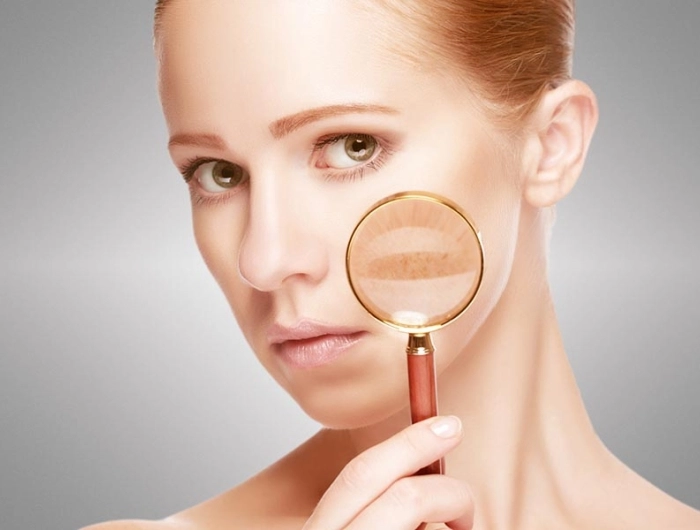You may be suffering from post-inflammatory hyperpigmentation or melasma. Post-inflammatory hyperpigmentation (PIH) is the medical name for discoloration that occurs after an inflammatory injury. The skin’s response to inflammation.
PIH is a condition that causes darkening of the skin and discoloration. This can appear as patches or large spots on a person’s body. It happens because the cells that produce brown pigment uniformly across your skin are overactive and produce excessive melanin. It can be caused by an inflammatory response in the skin or an injury. The pigmentation will be a darker brown if the excess melanin occurs in the epidermis (upper layer of the skin). If excess melanin occurs in the dermis (lower layer of the skin), it will appear as a grayish or blueish discoloration.
Most commonly, injuries like scratches, burns or cuts can cause PIH. Rashes can be the cause of PIH. Examples include eczema (eczema), psoriasis (pityriasis), lichen planus (lichen infection), and pityriasis. Acne or pimples can cause PIH, especially in people with brown skin. Sunburns, surgery, or cosmetic procedures like cryotherapy, dermabrasion and lasers can cause PIH.
Hyperpigmentation can be caused by skin inflammation, such as allergic reactions or facial waxing. The main cause of hyperpigmentation is sun exposure. The pigment can be found in the epidermis, which is the outermost layer of the skin, the dermis, or the deeper layer, and even a mixture. The lighter it is, the more superficial it is.
PIH that is more recent responds better to treatment.Hydroquinone is the most effective skin lightening agent. Agents such as kojic are combined with azelaic, glycolic, lactic, and ascorbic acids as well as botanical lighteners like liquorice and bearberry extracts. The majority of skin-lightening ingredients are more effective when used together than individually.
It takes time to lighten the skin. Results can take up to 12 weeks. Lightening creams that are not prescribed can only go so far. Look for more drastic improvements by using more invasive treatments like lasers or peels. Microdermbrasion is able to remove pigmented skin cells, allowing lighter creams better penetration. The pulse dye lasers, Q-switched Ruby and Nd:Yag are devices that can reduce brown pigment. These systems use bursts to destroy pigment cells and target pigmented spots. Avoiding sun exposure will prevent darkening existing patches and new areas. After you have lightened the area, it is important to maintain that result for the long-term.
You can buy it over the counter in strengths of 1% to 2 %, or by prescription as a cream 3% to 4 %. Hydroquinone lightens the skin by blocking an enzyme that produces melanin. Combination creams that contain hydroquinone and additional ingredients like kojic, glycolic, tretinoin, other retinoids or vitamin C can produce better results. To prevent unwanted skin lightening, hydroquinone creams must be applied only to the darkened areas. Hydroquinone can cause irritation to sensitive people. Before beginning treatment with hydroquinone, it’s important to consult your doctor.
A scientific study showed that 80% individuals who used a product containing 4% hydroquinone combined with glycolic acids saw an improvement in PIH within three months. Your treatment should not last longer than 6 months, as the lightening agent may cause other skin problems.
Acne patients are prescribed retinoids such as tretinoin or tazarotene. Retinoids clear acne by increasing cell turnover. This rapid exfoliation can also help to clear PIH. Retinoid products include Retin A, Tazorac and Differin. Many people find it beneficial that these creams reduce post-inflammatory hyperpigmentation while treating acne.
Results may not be visible for several weeks or even several months following treatment. Topical retinoids can cause excessive redness, irritation and/or dryness. This may increase hyperpigmentation. If you notice any of these symptoms, let your doctor know immediately.







